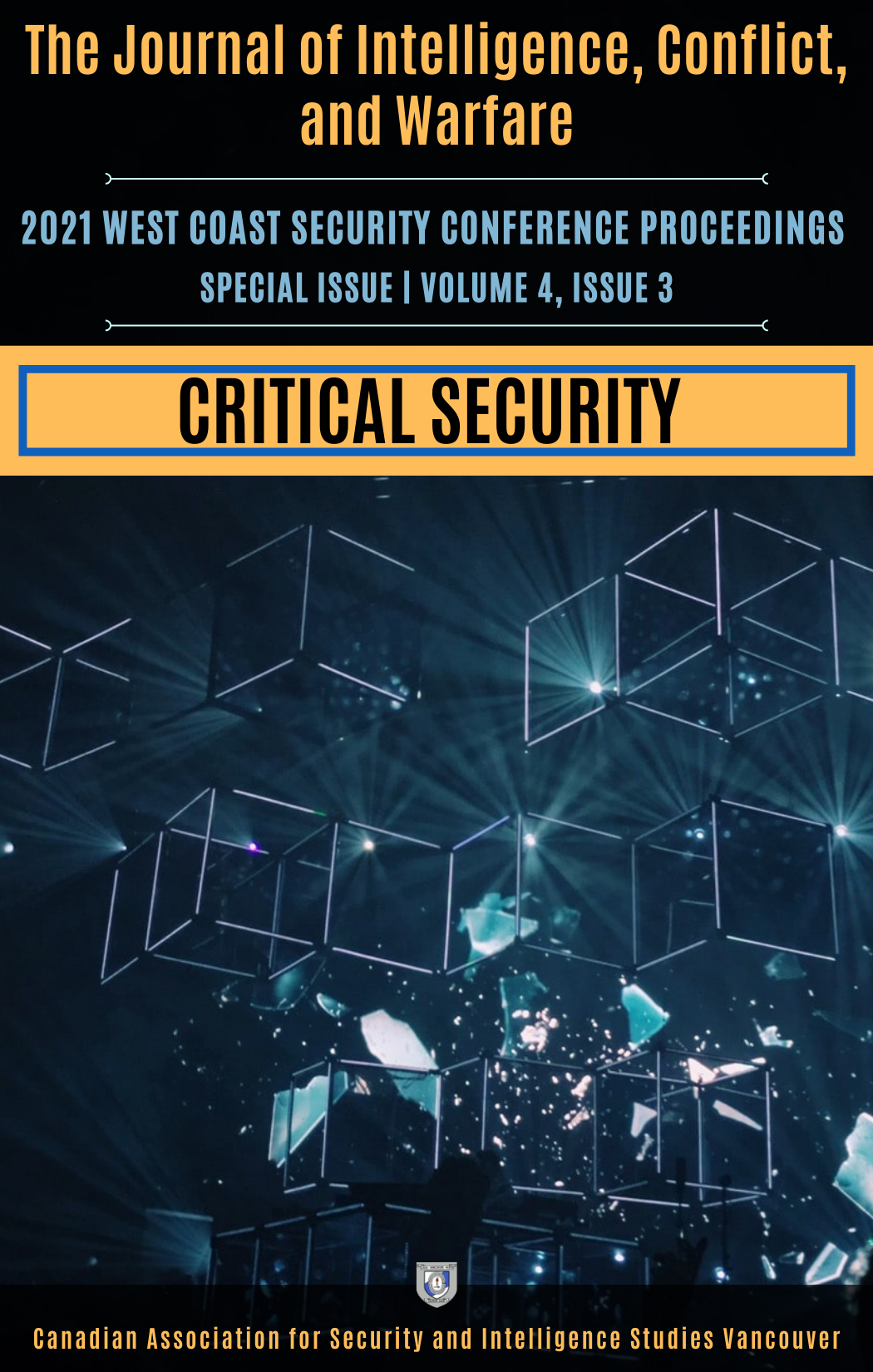Vol. 4 No. 3 (2022)
As critical security issues continue to evolve and emerge, the annual CASIS West Coast Security Conference continues to bring to light unique academic research and generate policy-relevant knowledge. The 2021 West Coast Security Conference sought to provide an opportunity for practitioners and academics to share their perspectives and research not only on violent extremism, intelligence, and policing but also on Arctic security and leadership in the defence and security sphere. The pieces included in this edition of the Journal of Intelligence, Conflict, and Warfare are a reflection of presentations and discussions that took place during the five-day 2021 CASIS Conference.
JICW Editor-in-Chief's Note

I am pleased to present Volume 4 Issue 3 of the Journal of Intelligence, Conflict, and Warfare inspired by CASIS Vancouver’s 4th Annual West Coast Security Conference: Critical Security. For two consecutive years now, we have held this conference online, which has allowed us to reach an even wider audience of experts and professionals all over the world. This conference not only expanded on themes of intelligence, extremism, and policing, but also branched out to highlight some new security concerns. Arctic security and the continuing development of young military, intelligence, and security leadership were of particular importance.
The pieces included in this issue report on some of the impactful presentations and discussions that emerged during our conference. The insightful conversations which resulted from dialogue amongst the participants brought to light some new approaches to dealing with old problems and also discussions on how we might frame new issues such as disinformation and misinformation in the security space. My hope is that these articles and briefings will inspire others to further discussion and research on contemporary and emerging security threats, and I look forward to the wide range of engaging submissions to this journal in the coming months.
The goal for this issue is to provide those who were unable to join us at our annual conference with a written synopsis of the themes and research presented. A key pillar of CASIS Vancouver is the dissemination of new knowledge and research in the security space, which is predominantly achieved through the triannual publication of this journal. As the COVID-19 pandemic continues, security threats continue to persist around the world because of and in spite of the pandemic. Our hope is that the research presented at the conference, and herewith, will bring a sense of reassurance to those who work within and research the security sphere.
Finally, I would like to thank my production team and the entire CASIS Vancouver team for making this issue possible, as well as the reviewers who have risen to the occasion during these uncertain times to continue their hard work and dedication to this journal. Thank you.
Sincerely yours,
Candyce Kelshall
Note: All pieces published in this Conference Proceedings edition follow the same citing format as journal articles. To see different citation styles, click on the "More Citations Format" button located within each item's page.
